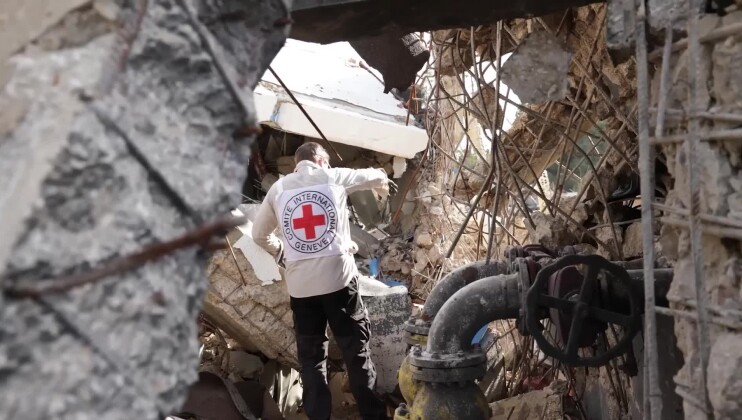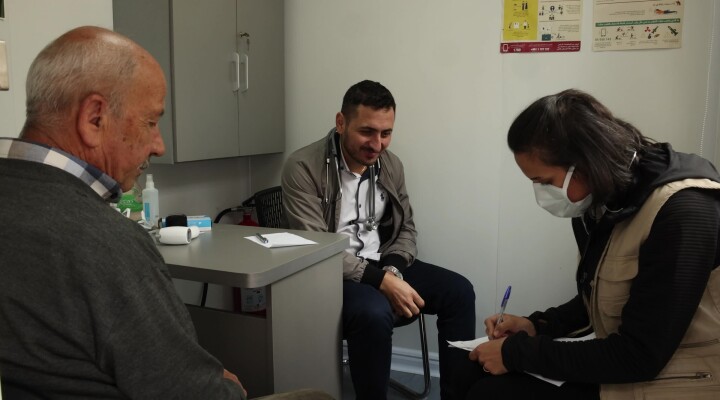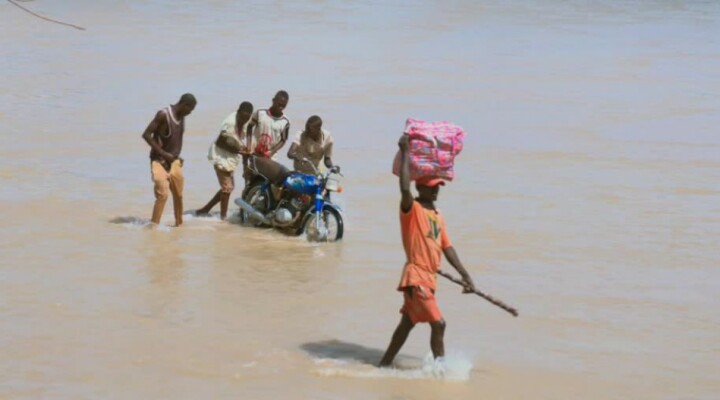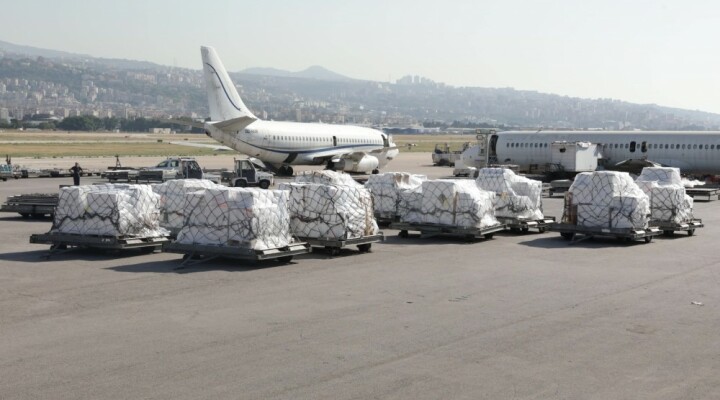ICRC: Health-care workers in the firing line
Attacks on health-care workers and medical facilities in conflicts and violent upheavals across the world are affecting millions, according to a new report by the International Committee of the Red Cross (ICRC). The report, presented in Geneva, 10 August 2011, is based on research in 16 countries over 3 years since 2008. This is the first time such an investigation has been conducted on an international scale.
The human cost is enormous, as whole communities are left without health care at a time when they need it most. "Violence is preventing the delivery of health care in many parts of the world today," states Pierre Kraehenbuehl, Director of Operations, ICRC. "It is one of the most critical and challenging issues confronting us currently but also one of the most overlooked in the world. Our main concern is the impact of this violence and the human cost."
LIBYA
Unique footage, shot earlier this year by independent photojournalist, Andre Liohn, starkly reveals the danger that health-care workers are exposed to as they treat the war-wounded close to the frontline. Beyond attacks on ambulances, medical teams struggle with severe shortages of staff, supplies and equipment. 19 year old Omar volunteered as an ambulance driver in Misrata. On call 24 hours a day, he never goes home but sleeps in his worn and battered ambulance. He has to jump start the engine each time he and the ambulance crew go to the frontline to pick up the wounded. They drive their patients back to ill-equipped clinics as the bombs explode around them.
Apart from the needs of the war wounded, normal healthcare is barely functioning in conflict -affected areas in Libya. Staff have fled, medical facilities have been damaged, and essential medicines and equipment are in short supply or unavailable. Those with chronic diseases are in extreme danger.
COLOMBIA
After 4 decades of conflict, health care in parts of southern Colombia has been destroyed. Violence between armed groups struggling for control of territory has led to threats, attacks and even killing of health care staff. The Rio Caguan, for example, has become a no-go zone for national health workers frightened for their own safety. As a result, thousands of people living along the 600 kilometre river have no access to regular medical care. Every few months, an ICRC health team travels by boat along the river, setting up mobile clinics. Hundreds of villagers come from miles around seeking help. A young mother, Juliette, has travelled 2 hours on horseback with her baby, suffering from diarrhoea and fever. She is given medication but she knows that if her baby does not respond, she will be on her own for the next 4 months. "I am very worried about the health of my son. We really need a doctor here." she says.
Pierre Kraehenbuehl says: "In many instances people aren't necessarily dying because of direct attacks against them in situations of armed conflict but rather because they are prevented from reaching proper care and treatment in hospitals and health posts. Or the other way round, health personnel are prevented from reaching the wounded and sick."
AFGHANISTAN
It is extremely difficult for Afghans to obtain health care in many parts of the country. In rural areas, medical facilities have often shut down as staff flee fighting and intimidation. Roads are blocked by checkpoints or made impassable by explosive devices. The ICRC has documented various cases of health workers being pressurised at gun point to disclose who they are treating.
Mirwais Hospital in Kandahar is the main referral hospital for 4 million people living in southern Afghanistan. The patients who make it here have often travelled long distances, risking injury or death from improvised explosive devices. There are no ambulances, and taxis often charge high prices, beyond the reach of the majority.
Rosia suffered a snake-bite a month ago, leaving her hand painful and swollen. She then had a miscarriage and tried to make the journey to hospital with her sister. But their way was blocked. Rosia's sister explains: "My sister was sick. The police would not allow the car to go through, the way was blocked in three places. Her baby was already dead. They let my sister's car go through at 7 o'clock, after an hour, but we had to wait till 10 o'clock. So what could we do?"
SOMALIA
Somalia's twenty years of war have wrecked the country's infrastructure and services. One of the worst casualties has been the health system. Medina hospital in south Mogadishu treated 3268 war-wounded last year, including over a thousand women and children. The hospital's 70 doctors and nurses treat the injured and sick at considerable personal risk. Some have received death threats and the hospital's director Dr Mohamed Yusuf has been the target of an assassination attempt.
As Dr Mohamed Yusuf performs surgery to remove a bullet from the abdomen of a patient, he is asked how many cases like this he treats: "A lot. We can not count. There are many."
In addition to the war-wounded Medina tries to treat the normal burden of sickness and disease. But providing a normal level of health care while a conflict rages is often impossible. A quarter of patients at Medina Hospital are non war-wounded, like this 10 month old baby who is suffering from asthma and thrombosis. Despite the attention of medical staff, the baby later dies.
According to International law, the wounded and sick in armed conflict have the right to medical assistance. The neutral status of health-care facilities, transport and personnel must be respected. Any deliberate assault violates these laws.
The ICRC is extremely concerned about such violations. Pierre Kraehenbuehl, states: "An end has to be put to this kind of violence against health personnel and health institutions. It's literally a matter of life and death."
Video 1 = GV's of Health Care Workers in Danger: Libya, Colombia, Afghanistan and Somalia.
Video 2 = Soundbites in English and French from ICRC Director of Operations, Pierre Kraehenbuehl for Health Care Campaign.
SHOTLIST ATTACHED IN ENGLISH AND FRENCH



